Surviving the 7/7 London bombings 20 years on
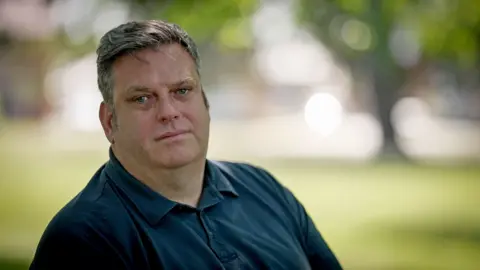 BBC
BBCTwenty years ago, a series of suicide bombings struck London's public transport system during the morning rush hour, killing 52 people and injuring more than 700. In his own words, Steven Desborough recounts his experience of the attack - and how he's coped since.
I was sitting down in the last carriage.
There was a loud bang, a loud screech, then a big white flash which ended up being the explosion as we passed through it. Then the train came to a screeching halt.
For about 10 minutes we sat in the carriage.
It was eerily quiet.
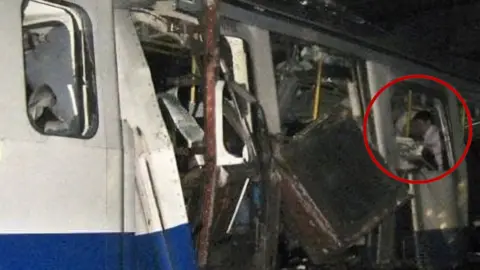 Steven Desborough
Steven DesboroughI was expecting all this rush and commotion going on, but that wasn't always the case.
I had basic first-aid training, but there were people there I couldn't help.
I knew I needed to speak to them and try and reassure them, to stop them from going into shock and to try and take their attention away from what had gone on just a few yards away.
I tried to reassure people and let them know everything was going to be OK, that we'll do this together.
There were a couple of people I spoke to, and we just tried to have a conversation.
I held a young lady in my arms. She later passed away.
I spoke to some people and said: "Oh, we will get a coffee after this." And how a lady's hair still looked nice, just to try and keep it normal.
But we all knew it wasn't.
As we were being escorted off, we went through the driver's cab at the back then down some stairs with somebody from the London Underground staff.
Instead of taking us to Liverpool Street, they made us walk up to Aldgate, which meant we had to walk down the side of the carriages and passed the one that was bombed.
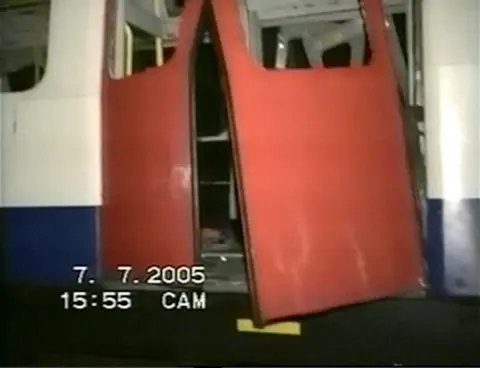 7/7 Bombings - Coroner's Inquest handout via PA Photos
7/7 Bombings - Coroner's Inquest handout via PA PhotosI don't feel I did anything out of the ordinary. I did what I could, but I wish I could have done more. I did my best on the day.
I think about the people who died often.
A lot of the people there were about my age, they had their whole lives in front of them.
There are times where I am out and about and I'm enjoying myself. I just look up and give them a thought: what would they have done? How would they have flourished going forward?
It's just a sad loss, it really is, for all those people, they had so much in front of them.
It was ripped away from them without any choice, without any knowing of it, in such a horrific way.
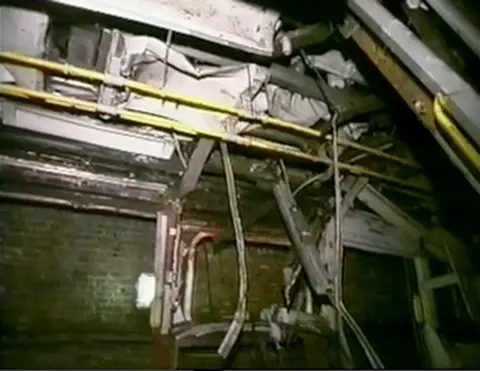 7/7 Bombings - Coroner's Inquest handout via PA Photos
7/7 Bombings - Coroner's Inquest handout via PA PhotosI try and separate that day, the actual incident, into three separate categories: first, surviving the bombing, I was fortunate enough, I was so lucky; then what happened in the carriage, dealing with and getting my head around that; then what happened afterwards and the responsibilities you still have.
It isn't just the responsibility that I had in the carriage, it's what happens with regards to the families that were involved and making sure the truth comes out.
The best therapy I had was my family and friends, they have been wonderful. They gave me the time and the space, they've been the best medicine.
It was hard at first. I know people I've come across that didn't know how to deal with me and and rightly so, because I didn't know how to deal with it myself, so I can't expect anyone else to know how to deal with me.
Those people that were there at the time, they were wonderful and they probably don't even realise it either.
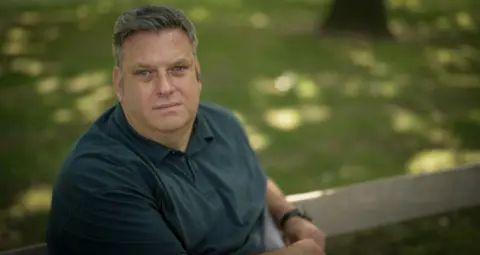
I now approach life in a different way.
There's been times where maybe I have been more cautious with certain things but then the majority of the time, it's about going out and enjoying it, just appreciating every moment.
There have been times where things pop up that nobody would realise; there might be a smell, or there might be a sound, or just something.
And it takes you back there and then.
You have to deal with it.
There's no point in trying to hide in the corner or let things get the better of you, you've just got to struggle on, and it was a struggle.
It's a lot easier now. I'm not saying it's easy, but it's easier now.
It has changed me. I think it's changed me for the better. It's made me more patient, more empathetic. But it hasn't defined me.
Let's make sure those people that passed away - they were civilians going about their daily lives - are remembered.
Let's not forget their names.
Going forward, just try and be kind to people.
People get so wound up in themselves so much now.
Be kind, have some empathy and a bit of patience.
You get a lot of understanding from people, but just by talking to them you get a different aspect on life.
Listen to the best of BBC Radio London on Sounds and follow BBC London on Facebook, X and Instagram. Send your story ideas to [email protected]
